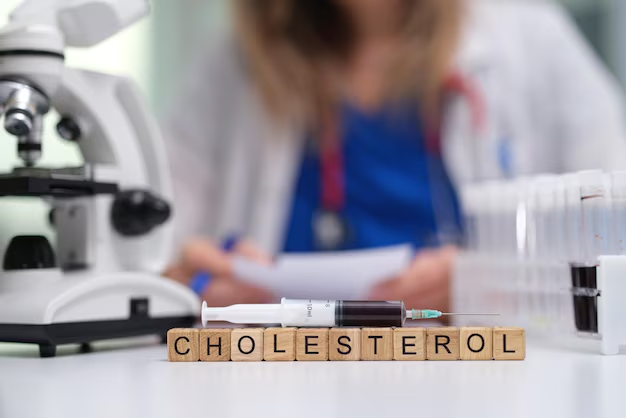Can You Catch Psoriasis? Understanding the Real Story
If you have ever worried about developing psoriasis from someone else or have seen your own skin condition stir concern in others, you're not alone. Before leaping to conclusions, it’s critical to understand the truths about psoriasis, a common skin condition that is often clouded by misunderstandings and misconceptions.
What Is Psoriasis?
Psoriasis is a chronic skin condition characterized by patches of red, itchy, and scaly skin. These patches, also known as plaques, can appear anywhere on the body but are most commonly found on the elbows, knees, scalp, and lower back. Psoriasis varies significantly from person to person, in both severity and location of the affected skin.
Behind the Scenes: The Science of Psoriasis
What triggers these excessive skin cells to accumulate is rooted in the immune system. Psoriasis is an autoimmune disorder, meaning the body mistakenly attacks healthy skin cells. This miscommunication speeds up the life cycle of skin cells, leading to their rapid buildup on the surface, manifesting in the form of patches or plaques.
Types of Psoriasis You Should Know
There are several types of psoriasis, each with unique characteristics. Here are a few:
- Plaque Psoriasis: The most common type, manifesting as raised, inflamed red skin covered with silvery white scales.
- Guttate Psoriasis: Often starts in childhood or young adulthood, characterized by small, pink-red spots, primarily on the torso and limbs.
- Inverse Psoriasis: Appears as bright red lesions that are often shiny and smooth, usually located in skin folds.
- Pustular Psoriasis: Marked by white pustules surrounded by red skin, generally not infectious.
- Erythrodermic Psoriasis: A very severe form, leading to widespread, fiery redness over large areas.
Debunking the Myths: Is Psoriasis Contagious?
The straightforward answer—no, psoriasis is not contagious. You cannot catch psoriasis from touching someone who has it, sharing swimming pools, or through any other direct or indirect contact. This condition is primarily genetic and immune-related.
Addressing Social Stigmas
Despite this factual understanding, people living with psoriasis often face social stigma and misconceptions. It’s essential to address and overcome these false beliefs to foster a supportive environment for those dealing with the condition.
Why the Confusion?
The confusion often arises because psoriasis can look like infectious conditions such as ringworm or eczema, but unlike these conditions, psoriasis does not result from bacteria, viruses, or fungi.
What Causes Psoriasis?
While the exact cause of psoriasis remains unclear, both genetic factors and environmental triggers are understood to play significant roles.
Genetic Factors
Genes play a pivotal role in the development of psoriasis. If you have a relative with this condition, your likelihood of developing psoriasis increases, although it's still not guaranteed.
Environmental Triggers
Even if you have predisposed genes, you might never experience psoriasis unless triggered by environmental factors. These can include:
- Stress: High stress levels may trigger a flare-up.
- Infections: They can activate the immune system, triggering psoriasis.
- Medications: Some drugs might provoke or exacerbate psoriasis symptoms.
- Skin Injuries: Cuts, scrapes, or severe sunburn can prompt the condition.
- Lifestyle Choices: Heavy alcohol consumption and smoking may also contribute to psoriasis flare-ups.
How Is Psoriasis Diagnosed?
Only a qualified healthcare provider can diagnose psoriasis through a comprehensive evaluation that might include a skin examination and medical history review.
What Happens During a Check-Up?
- Physical Examination: Analysis of your skin to check for signs of psoriasis.
- Medical History: Questions regarding your family history or any recent health changes.
- Skin Biopsy: In certain cases, a small sample of skin is taken to confirm the diagnosis.
Living With Psoriasis: Tips and Tricks
Living with psoriasis can be challenging, but understanding and managing your condition through lifestyle adjustments can significantly improve your quality of life.
Skincare Tips
- Keep Skin Moisturized: Frequent moisturizing helps control dryness and scaling.
- Control Itching: Oatmeal baths or cold compresses can soothe the itch.
- Mind the Climate: Humidity control and avoiding harsh weather can reduce flare-ups.
Diet and Lifestyle
- Healthy Diet: A balanced diet that reduces inflammation may help.
- Regular Exercise: Staying active has multiple health benefits, including stress reduction.
- Stress Management: Yoga, meditation, or hobbies can alleviate stress, reducing flare likelihood.
Professional Support
- Counseling: Speaking to a therapist can aid in managing emotional impacts.
- Support Groups: Joining groups provides a platform to share experiences and advice.
Psoriasis vs. Other Skin Conditions
Differentiating psoriasis from other similar skin conditions is vital for proper management and care.
Common Confusions
- Eczema: Primarily causes itchy rashes, often in response to allergens or irritants.
- Rosacea: Typically causes redness and visible blood vessels in the face.
- Dermatitis: Often results from allergic reactions or contact with irritants.
Each condition requires specific approaches and should be distinguished from psoriasis by a healthcare professional.
Key Takeaways
Understanding psoriasis is crucial for dispelling myths and fostering empathy. Here are notable takeaways about psoriasis:
- Psoriasis is Not Contagious: Direct contact with psoriasis plaques will not spread the condition.
- Autoimmune Nature: The condition stems from an overactive immune response, not from infections.
- Multiple Triggers: Environmental factors alongside genetic predisposition can activate symptoms.
- Diagnosis by Professionals: Only healthcare providers can accurately diagnose and differentiate it from other skin conditions.
- Living With Psoriasis: Comprehensive management strategies, including skincare, diet, stress reduction, and professional support, can aid in living comfortably with psoriasis.
Quick Guide: Key Insights about Psoriasis 📝
- Non-Contagious: Psoriasis can’t be spread through touch or interaction.
- Genetic and Immune-Related: Chiefly influenced by genetics and triggered by environmental factors.
- Multiple Forms: Understand the different types for better recognition and management.
- Consult Professionals: Essential for accurate diagnosis and management plans.
- Lifestyle Management: Effective skincare, diet, and stress management ease symptoms.
🌟 Embrace empathy and understanding toward individuals with psoriasis, recognizing the challenges they face with awareness and support.

